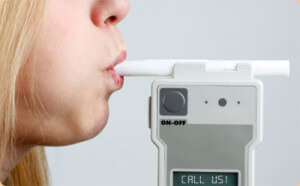
"If I get stopped for DUI, should I blow in the Intoxilyzer or refuse to take the test?"
There is no good answer to the question. If you blow in the Intoxilyzer and the result is over .08, you are presumed to be impaired and subject to a conviction for driving with an unlawful breath alcohol level. Additionally, if you blow over .15, you may be required to have an ignition interlock device placed on your car.
If you refuse to blow, the prosecutor is left with the officer's observations and other evidence (i.e., videotape) to attempt to prove that your normal faculties were impaired. However, the State will be allowed to argue that your refusal is evidence of your impairment, and you may also be charged with an additional misdemeanor for refusing to blow.
Additionally, a person arrested for DUI is subject to a suspension of their driver's license by the DMV. A person blowing in the Intoxilyzer gets a "hard time" suspension of 30 days; by refusing, the "hard time" suspension is increased to 90 days. It's called "hard time" because the driver has no right to a work permit or any other license to drive.
Many people are shocked, to say the least, to find out they cannot drive for three months.
To blow, or not to blow? Do you blow in the Intoxilyzer, thereby giving evidence to the prosecutor but limiting your hard time suspension to 30 days, or do you refuse, taking away part of the criminal case but risking a 90-day hard time suspension?
The best advice to anyone asking the question is they should not put themselves in this position. It is impossible at the scene for a driver to know which legal technicalities may afford them relief at the DMV or in criminal court. A person charged with DUI can get help from good counsel. A good DUI lawyer can help people who blow and those who refuse.
But the best advice remains, be safe this holiday season and don't drink and drive.